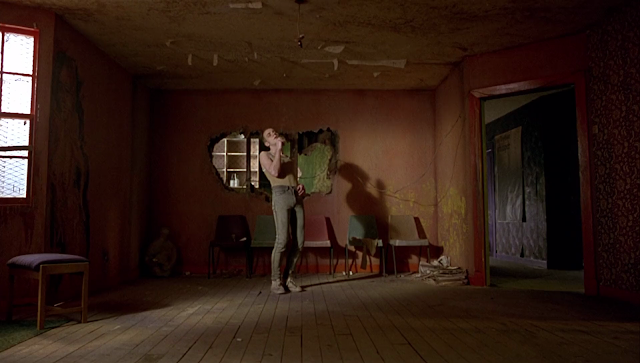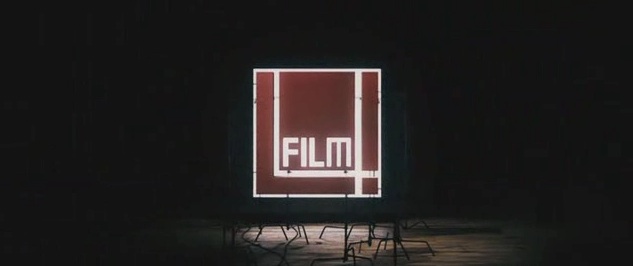British Film and Trainspotting
Both Trainspotting and This is England appear on Section C: British Film since 1995 of Component 1: Varieties of Film and Filmmaking and it is therefore worthwhile considering both films in the context of the British Film Industry. Whilst the questions in this section of the exam paper will not focus directly on the movies as British films, any response to a question on film language, meaning and response, representation and aesthetics or social, cultural, political and institutional contexts will undoubtedly be shaped by the fact that these films are British. The narratives of both films and the film's ideologies will also be influenced by the fact that Trainspotting and This is England are made outside of the dominant Hollywood system.
The majority of revenue generated at the UK box office is for films produced in the USA (or UK produced films with Hollywood studio backing), currently accounting for approximately 85% of all revenue generated at cinemas. This suggests that Hollywood continues to dominate the UK box office, raising some concerns about the relative success of British films and the British Film Industry. If British films perform so poorly in the UK (compared to Hollywood), where there is an audience that can relate to much of the narrative content contained in films which, in part, reflect their own lives and experiences, then it is likely that the performance of these films in territories outside of the UK is significantly worse. It is important that you consider why this may be the case. Factors include the fact that British films are poorly marketed, do not feature globally recognisable stars, are difficult to categorise into genre and are often not based upon existing source material that already has a fan base.
The top 20 box office earners as recently as 2016 were almost exclusively produced by large Hollywood Studios, owned by huge multimedia conglomerates. Disney released Rogue One: A Star Wars Story, The Jungle Book, Finding Dory, Captain America: Civil War, Zootropolis, Doctor Strange and Moana, whilst Warner Brothers, 20th Century Fox and Universal release three, five and three of the top 20 films respectively. The only British film to appear in the top 20 was Absolutely Fabulous (a film based upon existing source material) - and that was distributed by 20th Century Fox and partially funded by Fox Searchlight (the independent production arm of 20th Century Fox).
Hollywood, then, dominates the global film industry. This is not to say, however, that the UK doesn't have a vibrant and historic film industry - rather, that it is often overshadowed by the financial power of the Hollywood majors. It is against this backdrop that you should consider the relative success, or the relative struggle to reach audiences, of films such as Trainspotting and This is England. Whilst it is unlikely that there will be a question that asks you to focus specifically on the differences between the British Film Industry and Hollywood, you may find it useful to provide some of this context in your answers, where appropriate.
In terms of being a market for films, the UK remains the third biggest market in the world, behind the USA and China, generating $1.2 billion annually. There are nearly 7000 film production companies in the UK, 2,700 post-production companies, 420 film distributors and 230 film exhibitors (with nearly 4,500 cinema screens at over 800 cinema sites) BUT the majority of these companies are tiny compared to those associated with Hollywood.
Hollywood is dominated by a handful of multimedia conglomerates, such as Disney, Sony and WarnerMedia - all of which own film companies (such as Marvel, Lucasfilm, Walt Disney Pictures, Warner Brothers, New Line, Columbia Pictures and MGM) alongside numerous other media companies in the fields of television, music, video games and print publishing. This institutional convergence enables Hollywood film companies to spend vast sums of money on making and marketing their films (often in excess of $150 million on the production of a single film and the same amount again on promoting that film). The financing of both film production and film marketing is perhaps the most significant difference between the UK and US film industries.
Trainspotting was produced by Channel 4 Films (now known as Film4 - which also co-produced This is England). Both companies are offshoots of the TV company Channel 4 and have helped fund some of the most significant UK over the last 40 years. The use of money generated by the television industry is crucial in helping make British films and has become the cornerstone of UK film production funding in the absence of an industry structure comparable to that found within Hollywood. In the UK, companies such as Film4 and BBC Films help attract other production partners through the co-production model, thus securing funding without access to Hollywood money.
For British films, another way of establishing an adequate production budget includes securing some financial support from the British Film Institute (BFI). Currently, the BFI (which took over from the now defunct UK Film Council, which part-funded This is England, and was abolished in 2011) operates a number of financial schemes to aid UK filmmakers, which are in turn funded by the National Lottery and some government grants. Whilst the level of investment by the BFI is small, it is nevertheless crucial in terms of persuading other investors to come on board - and therefore often vital in helping UK films get made and promoted. To successfully apply for BFI funding the film production company must submit a form called the Cultural Content Test to prove that the proposed film will have a high proportion of cultural signifiers such as talent, crew, locations and story material.
Alongside support from the BFI and the involvement of UK television companies, a further source of funding for British films comes from regional film bodies. Regional film bodies provide further revenue sources for cash-strapped UK producers, and two such bodies were involved in the production of This is England (EM Media and Screen Yorkshire). Finally, funding is often also sought from existing UK production and distribution companies, private investment and European partners. Compared to Hollywood and the financial might of the multimedia conglomerates, the UK is a cottage industry; tiny in comparison.
In the UK, a high-end film may cost up to approximately £10 million/$11 million. Recent UK success stories such as Slumdog Millionaire (made by Trainspotting's director Danny Boyle in 2008), The King's Speech (2010) and The Woman in Black (2012) were all made for around this amount of money. In reality, however, the majority of British films are made on small micro budgets. This is England director, Shane Meadows, had a budget of just £8,000 for his first film Small Time. His second film, TwentyFourSeven cost £1.5 million as did Danny Boyle's Trainspotting. Such figures, by Hollywood's standards, are very low; an average star-driven comedy such as Zoolander 2 cost over $50 million, whilst blockbuster franchise films such as Wolverine sequel, Logan, cost $97 million. Huge, special effects-driven movies, such as Batman v Superman: Dawn of Justice cost over $250 million.
Due to the difficulty of competing with Hollywood at what it does best (mainstream genres, franchises, star vehicles, high production budgets, an emphasis on spectacle), the UK tends to specialise in other types of films, such as:
- HERITAGE FILMS - films about the past, focusing on UK history and historical locations. Sometimes these are known as period dramas and feature the royal family or wars. Often, the source material comes from a British literary heavyweight such as Jane Austen, Charles Dickens or William Shakespeare.
- SOCIAL REALIST FILMS - films that deal with realistic, day-to-day life on the recognisable streets of the UK. These tough, harsh and uncompromising films, often described as 'kitchen-sink dramas' are usually about working class life and aim to expose social inequality or highlight important social/political issues.
- COMEDY - as a genre, comedy is achievable on a relatively low budget and is therefore a viable option for the UK film industry. The genre allows filmmakers to display the 'black' or 'quirky' humour that is often associated with British comedy and there is a lot of opportunity for spin-off films which are based on successful situation comedy TV series.
- HORROR - again, horror is a relatively low budget genre and is therefore a viable option for the British film industry. The UK has a very good track record within the genre, from literature to TV, and some of the UK's most successful films, globally, belong to the genre. Perhaps the UK's most successful studio of all time, Hammer, made films almost exclusively from the genre.
Trainspotting (and This is England) clearly belongs, in part, to the tradition of social realist films that the UK is associated with producing; it deals with lower-class characters, drug addiction and a range of social issues. A number of scenes are also shot in a washed-out style, reflective of authentic, low budget dramas that deal with real life - though, as you will see when we discuss the film's cinematography, the filmmakers often employ an aesthetic that deliberately tries to work against the realist cinematography so familiar in many British films which deal with social issues such as drug use. Notably, Trainspotting does, however, incorporate 'black' comedy into its narrative and being tricky to easily categorise in terms of genre is often a hallmark of British films (which may, partly, explain why UK films tend not to appeal to as broad an audience as their Hollywood counterparts).
Remember, the information above will not form the heart of an essay that you write. The focus will be on aspects of film form, narrative, ideology, aesthetics, representation or one of the many contexts that inform your understanding and appreciation of Trainspotting (and This is England). It is inevitable, however, that elements of the notes above that place Trainspotting in the context of British cinema will enhance any essay you write.

















mmorpg oyunlar
ReplyDeleteinstagram takipçi satın al
tiktok jeton hilesi
tiktok jeton hilesi
Saç ekim antalya
INSTAGRAM TAKİPÇİ SATİN AL
instagram takipçi satın al
Metin pvp
TAKİPCİ SATİN AL
En Son Çıkan Perde Modelleri
ReplyDeleteMOBİL ONAY
mobil ödeme bozdurma
HTTPS://NFTNASİLALİNİR.COM
ankara evden eve nakliyat
Trafik sigortası
dedektör
web sitesi kurma
ASK KİTAPLARİ